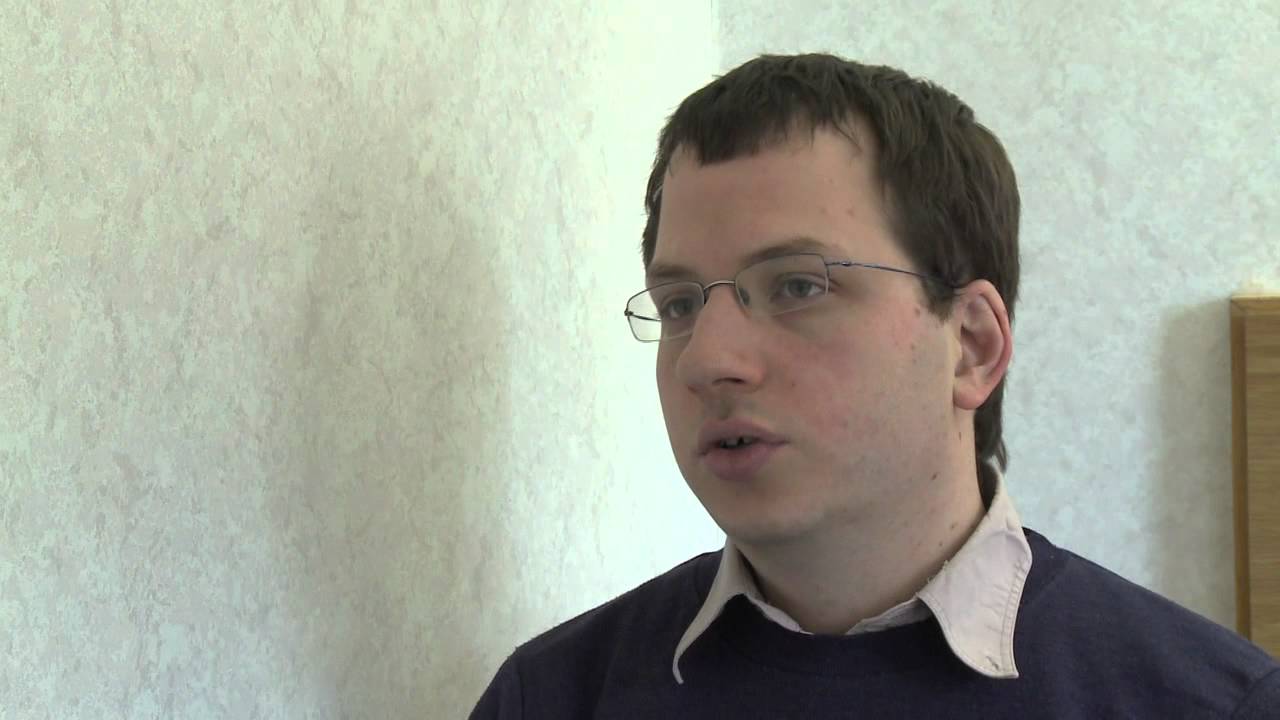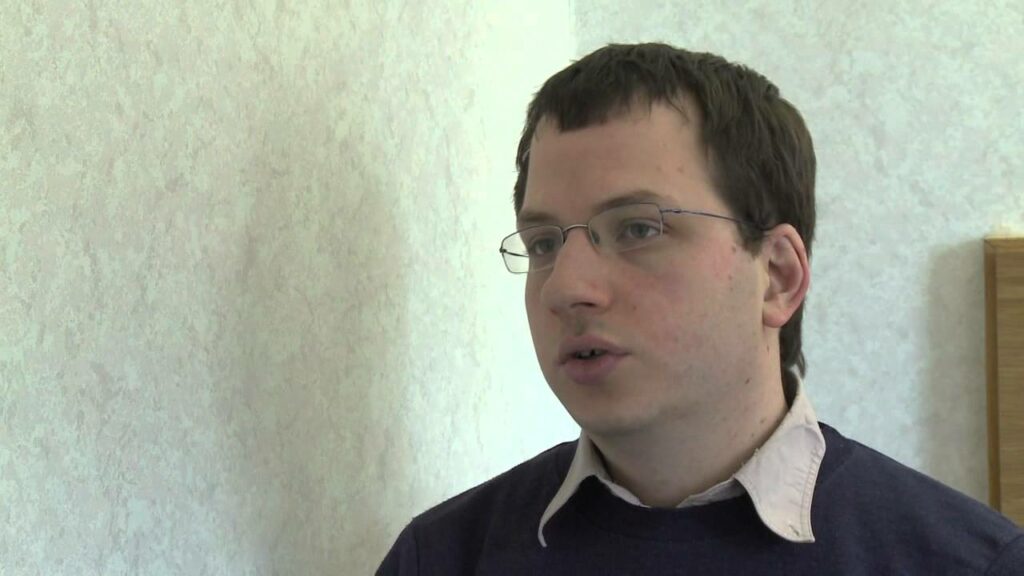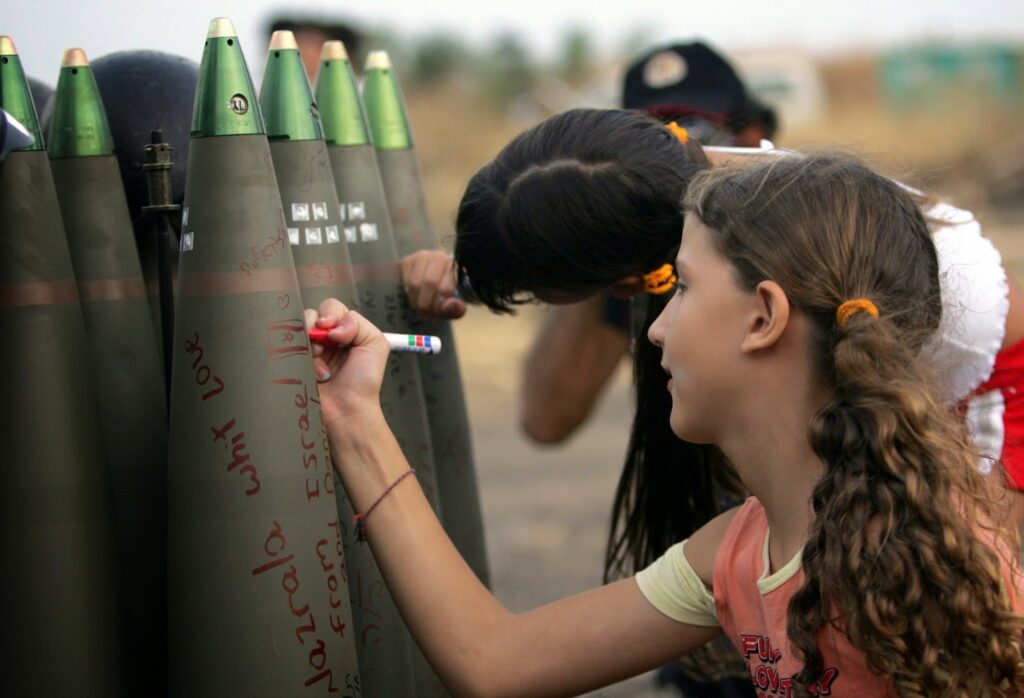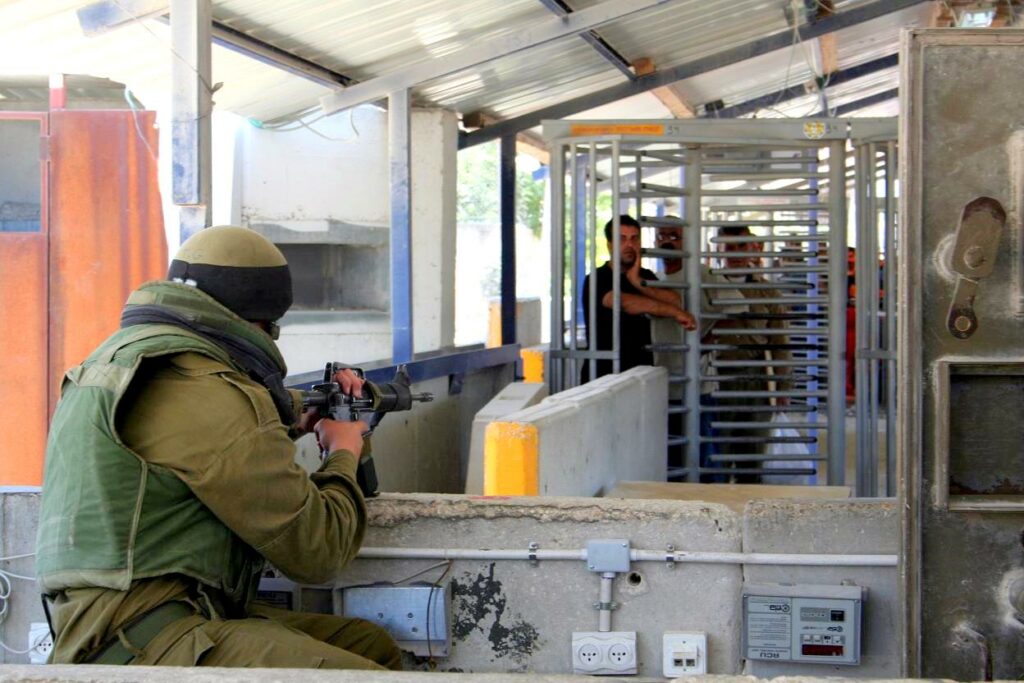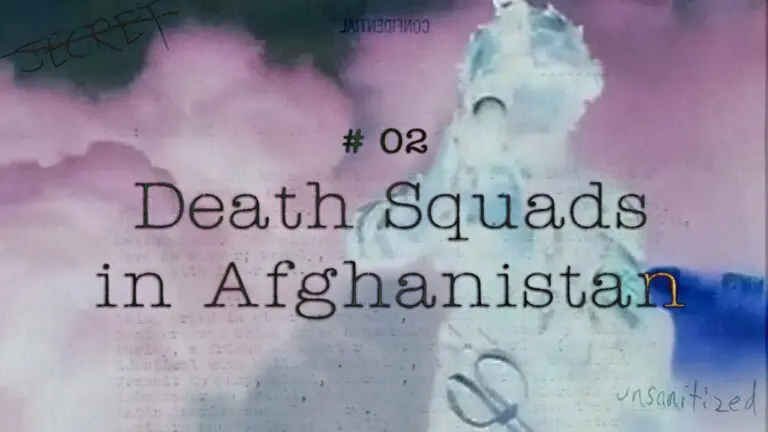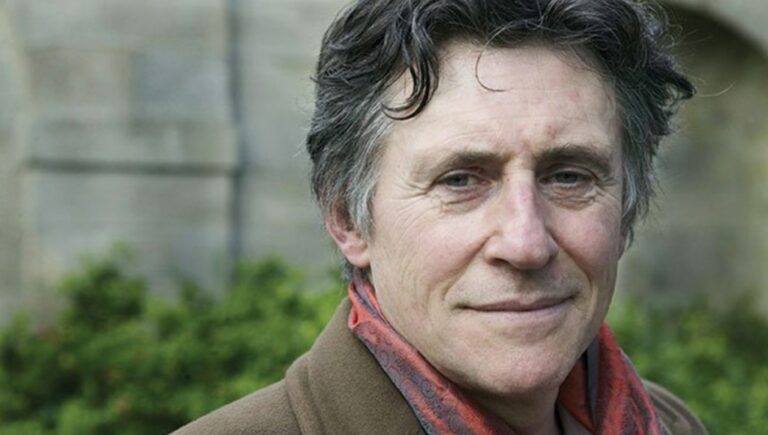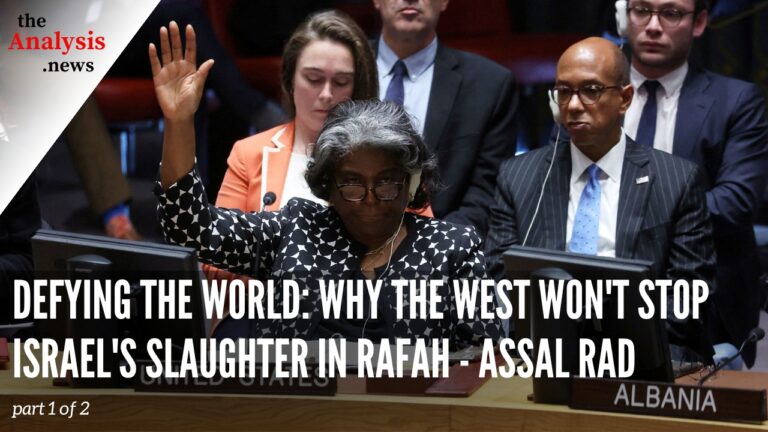This interview was originally published on July 9, 2014. Mr. Hever says he became politically active after the Second Intifada was repressed with extreme violence by the Israeli military and police.
PAUL JAY, SENIOR EDITOR, TRNN: Welcome back to Real News Network. I’m Paul Jay in Baltimore. And this is Reality Asserts Itself.
We’re beginning a new series of interviews, and this is with a man who’s been studying political economy of Israel for many years–although he’s rather young for me to say “many years”, but he has. And he speaks, I think, with the maturity of someone not quite so young. He’s been working at the issue of the political economy of occupation. He’s been looking at the political economy of the Israeli national security state. And we’re going to try to have a conversation that gets beyond some of the normal critique back and forth, partly get to know through him more of the Israeli psyche through his psyche, and that–we’re going to begin with his own personal biography, although he’s far from typical.
But we’re also going to start to look, in some of the episodes or segments of this series, what might a solution, a real possible solution, what might that look like.
So without further ado, now joining us in the studio is Shir Hever. He’s an economic researcher in the Alternative Information Center, a Palestinian-Israeli organization active in Jerusalem and Beit Sahour (I hope I’m pronouncing that right). His research focuses on international aid to the Palestinians and to Israel, the effects of the Israeli occupation on the Palestinian territories and on the Israeli economy, and the boycott, divestment, and sanctions campaign against Israel. He’s writing his PhD dissertation on the privatization of security in Israel, and his first book was Political Economy of Israel’s Occupation: Repression beyond Exploitation. It was published by Pluto Press in 2010.
Thanks for joining us, Shir.
SHIR HEVER, POLITICAL ECONOMIST AND ANALYST: Thanks for having me.
JAY: So, as viewers know, we usually start off with a first segment with some personal background and then move into some of the issues. So we’ll do that again. And I’m particularly interested in your background, Shir, ’cause you’re a bit of an anomaly. There are others like you, but not many–by that I mean people that grew up in Israel who have come to progressive anti-Zionist conclusions–and more than coming to conclusions, you’ve been very active. What kind of home did you grow up in? Where and when were you born? And what was the political atmosphere of your household?
HEVER: I was born in Jerusalem, and I was born into a lefty household, a critical household. And the most important thing that I think my parents taught me and raised me with is this idea that I have to be aware of my own privileges and to take responsibility for them, because Israeli society is extremely divided and extremely hierarchical, and I am lucky to have been born male, white, Jewish, Ashkenazi, so in all of these categories in which I had an advantage, and my parents told me this is an unfair advantage.
JAY: And what did your parents do?
HEVER: My father still teaches at university, and he studied political literature. And, actually, he specialized a lot on political poetry of fascists, of Zionist fascists.
JAY: The Zionist fascists.
HEVER: Yes, yes. And so he was very–from a very critical point of view, but he was very open to studying also those people he didn’t agree with.
JAY: Now, just because it’s an interesting kind of historical note, there’s kind of two types of Zionist fascists. There are Zionists who are simply very aggressive against Palestinians and people called them fascists, and then there are Zionists who loved Mussolini.
HEVER: Yeah, I’m talking about the second kind. I’m talking about real–people who really adopt this kind of Zionist–or this kind of fascist ideology that the state is above everything, and that we all have to conform to a certain idea, and that we should find our great leader. So that kind of Zionism is not mainstream, actually, and it’s not in power. In many demonstrations that I had the chance to go to, people tend to shout that fascism will not pass.But, of course, when you look at it from a more academic point of view, there’s a difference between fascism and other kinds of repressive regimes, and I would say Israel is a colonial regime, a colonialist regime, in which there’s apartheid, there’s very deep entrenched repression.
But in a colonialist system there’s always fear. And you grow up with this fear also. You always know–.
JAY: Did you?
HEVER: Yeah, yeah. I mean, when I would go to certain areas or when I took a taxi with a Palestinian driver, then even my closest family would get nervous about it. And then it made me wonder: how come you taught me that everybody’s equal but you’re still afraid of Palestinians?
JAY: But, actually, when I was asking the question did you grow up afraid, I was actually did you grow up afraid of the Israeli government, Israeli public opinion, because it sounds like your father and you have opinions that are certainly now in the minority in Israel, and it’s become so aggressive in terms of the level of racism and how aggressive it is against people like you.
HEVER: Well, no, it’s not aggressive against people like me. That’s one of the things that it’s very important for me to say, because, like I said, you have to be aware of your privileges.
JAY: Well, I take it, not as aggressive as it is against Palestinians,–
HEVER: Yeah.
JAY: –but I’ve seen some of these protests, like, with, you know, Lia Tarachansky, our journalist who covers [them], and they see her there, and sometimes some of the protesters come over and, you know, they attack her with great, vicious level of rhetoric.
HEVER: Yeah, rhetoric, sure. And, of course, if you do things, if you, say, speak your mind in a certain situation, in a right-wing demonstration, for example, you could be severely beaten up. That’s certainly true.
But, nevertheless, Israel is extremely dependent on the West and extremely dependent on good relations with Western countries. So in order to preserve the image of a liberal democracy, there has to be one group in Israel that has freedom of speech. And I happen to belong to that group. I was able to write what I wanted to write and say what I wanted to say without being harassed by the authorities. And that’s something that, unfortunately, Palestinian citizens of Israel are not able to do and many of my colleagues who don’t happen to come from this privileged group are not able to do. So it is liberal democracy for a very small percentage of the population.
JAY: And this is something–is part of your milieu as you grow up, ’cause a lot of this is transmitted from your father to you.
HEVER: Yeah. Yeah.
JAY: And your mother’s on the same page?
HEVER: Yes, yes. My mother’s a pacifist. And even though she was a government employee, she was very critical of her work during her work in the government. And she comes also from a family of fighters. The family–her father fought in the Palmach, the Israeli terrorist group that helped commit the Nakba.
JAY: Well, that’s actually an interesting question, then. Where were your grandparents in all this and how did they think about your parents’ politics, and then yours?
HEVER: Yeah. Well, so my close family, my immediate family, they were very supportive of my opinions. And we had many political debates at home–sometimes arguments, but in the end I think for the outsider it doesn’t seem like we’re that much far apart. When you go a little bit further to the extended family, then that’s a whole different story. And most of the family on my mother’s side stopped speaking with me after I decided not to go to the army. And so, yeah, my mother’s parents, who were fighters in the Palmach, they had a completely different worldview and a very Zionist right-wing perspective in which they believe that all of these policies against Palestinians were completely justified.
JAY: And your grandparents, were any of them–when did they come to Israel? Did you have direct family that were killed during World War II?
HEVER: Yeah. So this is actually the exact–the interesting intersection of two stories, because my mother’s side of the family came to Palestine before the Holocaust, before the Second World War, and participated in the Nakba against Palestinians. And my father’s family–.
JAY: So they came during the ’30s or ’20s?
HEVER: Yeah, over some time, but yeah.
And my father’s family came right after the war. They escaped from the Nazis in Poland. And the vast majority of the family in Poland was exterminated by the Nazis. So they escaped to the Soviet Union, where they lived pretty harsh years during the war. And then the family scattered again, and that part of the family that chose to go to Palestine, to Israel, happened to be my side of the family.
JAY: Just to go back to the side of the family that came during the ’20s and the ’30s, it’s an important note how much you could say repression or persecution of Palestinians by Jews that emigrated already was taking place in the ’20s and ’30s. I’ve seen, you know, newspaper articles and debates that were going on sort of among progressive Jews around the world, and the amount of–I read stories of factories that had been purchased, where Jews would take over the factory and fire all the Palestinians–
HEVER: Yeah.
JAY: –already the pressure to try to force Palestinians out of the area.
HEVER: That is a concept called Hebrew labor, and it was done very openly and without shame because there was at that point of time no concept that such structural and comprehensive racism against a particular group of people is something that Jews should also be worried about. I mean, it wasn’t something that was even in people’s minds so much, because Palestinians were part of the scenery, part of the background, and not treated as the native inhabitants of Palestine.
But it has to be said also that during those fights it wasn’t–even though it was a colonial situation, in which Zionists were supported by foreign powers in coming and colonizing Palestine, it wasn’t clear if they were going to succeed or not, and it wasn’t clear until 1948 whether they would succeed or not. So from the personal stories of these people, they saw themselves as heroes or as overcoming a great adversity, and not as people who had all their options and decided that here’s a little piece of land that we want to add to our collection. From their point of view, this was their chance to have their own piece of land, and when looking at the colonial powers, the European colonial powers operating all of the world, they didn’t think that what they were doing was so strange or peculiar.
JAY: Yeah, the idea of being a colonialist was not such a bad thing. And, in fact, the whole first half of the 20th century, and certainly the early parts, it was considered, you know, that’s the way the world is.
HEVER: Yeah. Theodore Herzl,–
JAY: The winners win.
HEVER: –the founder of Zionism in many views, said that Zionism–the colonization of Palestine is a colonial question. He actually wrote a letter to Cecil Rhodes to ask him for advice about how to colonize a piece of territory.
JAY: And they rationalize it that they are a force of the growth of civilization and they’re civilizing uncivilized peoples and such. Yeah.
HEVER: He said the Jewish state would be a beacon for the nations.
JAY: It sounds like Reagan, yeah.
HEVER: Yeah. They would bring progress to Palestine.
JAY: Alright. Let’s bring this back to you again. So you grow up. Your parents are progressive and are very critical, or anti-Zionists themselves, yes?
HEVER: No. No.
JAY: Critical.
HEVER: They were critical, but they were Zionists.
JAY: Okay.
HEVER: And their shift to–I wouldn’t say directly anti-Zionism, but–.
JAY: Then let’s be clear in what we mean by that and the term: whether you think there should be the state of Israel as a Jewish state. So they believed it should be. They just didn’t think–.
HEVER: Yes, at that point they did.
JAY: Okay.
HEVER: And during the ’90s there was–the Oslo process began. There was a coalition between Yitzhak Rabin from the Labor Party and Meretz, which was the part that they supported. Meretz was the liberal party for human rights, but still a Zionist party. And this coalition started to negotiate with Yasser Arafat and to start the Oslo process. But at the same time, they would implement these policies that were just completely undemocratic and–for example, to take 400 people who were suspected of being members of the Hamas Party without a trial and just deport them. And at that point my parents had a kind of crisis of faith and they decided not to support his party anymore. And I would say this is the moment where Zionism was no longer accepted.
JAY: How old were you?
HEVER: I was in high school.
So, during these discussions at home, we would talk about these things.
JAY: And does your thinking evolve along the same lines around the same time?
HEVER: Yeah, yeah. And at the same time, I have actually never seen the occupied territory from the inside. I’ve seen those parts of the occupied territory that have been completely assimilated into Israel so that you wouldn’t know, but my parents said, we’re not going to go there, we’re not going to visit, unless Palestinians invite us, because it would mean to use our privilege and come on the bayonets of the Israeli army. So when there’s going to be a separate Palestinian state, we will go there as tourists.
JAY: Now, as even before this moment you describe you’re already not on the same page as much of your extended family, and you’re certainly not on the same page as most of Israeli society, where in your own thinking and your own–as you look ahead of your own life, how do you feel about that, in the sense that it’d be a heck of a lot easier–. You’re a smart guy. You can obviously have a good, successful academic career, or you probably could have had a good business career if that’s where you had chosen. Why and where and when do you decide, no, I’m going to commit to this rather than my career and put up with the slings and arrows of outraged opinion?
HEVER: I think the moment that I made that choice is actually much later, because it’s possible to have all these opinions but still play the game and go to any regular career path. But after I decided not to go into the army and after I decided to go to university, in the university I experienced something that changed my mind.
JAY: But back up one moment. You decide not to go into the army.
HEVER: Yeah.
JAY: That’s a big decision in Israel.
HEVER: Well, I was again lucky to be in this very interesting time period where Netanyahu just became prime minister, and he was being very bombastic about his announcements, and a lot of people started doubting the good sense of going into the army. So it was a time where it was relatively easy to get out. At first I thought, I will go into the army, because I went to a very militaristic school. My school was very proud of all the intelligence officers that used to come out of it. So I thought, okay, I don’t want to be an occupier, I don’t want to be a combat soldier in the occupied territory, but if I’ll find some some kind of loophole that I can be a teacher or do some kind of noncombat work for the army, I’ll do that.
JAY: Why? At that time why? Were you feeling a sense of duty? Patriotism? Or it was just something–.
HEVER: Because in my entire school there was nobody who even contemplated not going into the army. It wasn’t something that was possible. So I had doubts. I read Catch-22. But I didn’t know anybody who decided not to go to the army.
JAY: But I have to stop for a second. Like, one of the best political satires in the history of books if you haven’t read it. Go on.
HEVER: Yeah. But then I decided that in order to get that loophole, that I would not have to go to the–to be a combat soldier, I can go and do volunteer work for year, work in an impoverished town of Israel called Sderot and live there for a year, and then I will start my military service, meaning that it will be a longer service, but–.
JAY: Okay. So the moment comes later where it becomes more a profound decision for you.
HEVER: Yeah. Well, during that year in Sderot, I saw other aspects of the Israeli society. And that’s when I decided I’m not going into the army and instead I’m going to university directly.
And just as I was starting my bachelor’s, the Second Intifada started. And there was a group of students–.
JAY: What year are we in?
HEVER: Two thousand. Well, I was already in my second years of bachelor’s. But there was a group of students and professors in Tel Aviv University who decided that they’re going to bring witnesses from the occupied territory to say what’s going on during the intifada, what you don’t read in the newspapers. And back then it was possible. Today it’s no longer possible.
JAY: Okay. Now, some of our viewers are young and they won’t know what you mean when you say “Second Intifada”. So a real quick–.
HEVER: The Second Intifada started in October 2000 with a very strong reaction to Ariel Sharon, who was–.
JAY: An uprising of Palestinians, mostly youth.
HEVER: Of Palestinians against the Israeli occupation, after Ariel Sharon went into the Al-Aqsa Mosque in a very provocative and violent gesture.
But I also remember from that time that in the news they said–the World Health Organization said that the water in Gaza are not fit for human beings to drink. And then the Second Intifada started about a month later. And I was thinking, well, this cannot be unrelated. It’s not just about religion. It’s also about economy, it’s also about standard of living and the great frustration of Palestinians with how the Oslo process was not getting them anywhere. And I used to support the Oslo process, because I used to read the Israeli newspapers, and it seemed like Israel is being very generous and willing to negotiate, when in fact–. But my mother, I said that she was working for the government. She would bring me some documents about the Oslo process, and there I would be able to read about the water allocation and about land allocation and say, well, this is certainly not a fair kind of negotiation. But then, when the Second Intifada started, it was repressed with extreme violence by the Israeli military, by the Israeli police.
And that was also a moment in which I felt that even living in Israel is becoming unbearable for me. But there’s always kind of the worry, is it going to get to the next step? I think this immediate tendency to compare it with the ’30s in Germany is because it’s a Jewish society.
JAY: It’s just you start going to parties, and overt racism is now okay.
HEVER: Yeah.
JAY: And it’s that level of dropping the pretense of how violent is the attitude towards–whether it was Jews in Germany or now Palestinians. As a pure political equation, I’m not suggesting that. Yeah.
HEVER: Yeah, yeah. And then it also changed, actually, because that’s when I became politically active. That’s when I started to join various organizations, go to demonstrations on a regular basis, and I started to meet friends. And that’s also when I–going back to this idea of being aware of my privileges and being responsible for my position in society, I thought the most important thing I can do is join groups which are joint-struggle groups, not to just go to another one of those Zionist left groups that say, we as Jews feel sorry about the Palestinians.
JAY: “Joint” means Jews and Palestinians.
HEVER: Yes, joint is–. Well, it depends where you’re working. It’s either Israelis and Palestinians, when we’re talking about Palestinians from the occupied territory, or joint Jews and Palestinians inside Israel working for social justice.
JAY: Right.
HEVER: So these were the kind of groups that I was joining.
JAY: Okay. In the next segment of our interview, we’re going to talk about a question that gets asked all the time, and of course there are some easy answers, but I’m hoping Shir takes us a little further, which is: how does a people who have suffered so much from racism and repression and a people that have such a history all over the world of fighting for progressive ideals, how does it end up a society which seems on the whole to be contrary to all of that progressive ideals? So please join us for the next segment of our interview with Shir Hever on The Real News Network and Reality Asserts Itself.
Podcast: Play in new window | Download | Embed
Subscribe Apple Podcasts | Spotify | Android | iHeartRadio | Blubrry | Email | TuneIn | Deezer | RSS
Never miss another story
Subscribe to theAnalysis.news – Newsletter
“Shir Hever is an economic researcher based at the Alternative Information Centre in Jerusalem. He is the author of The Privatisation of Israeli Security (Pluto, 2017) and The Political Economy of Israel’s Occupation (Pluto, 2010).”
